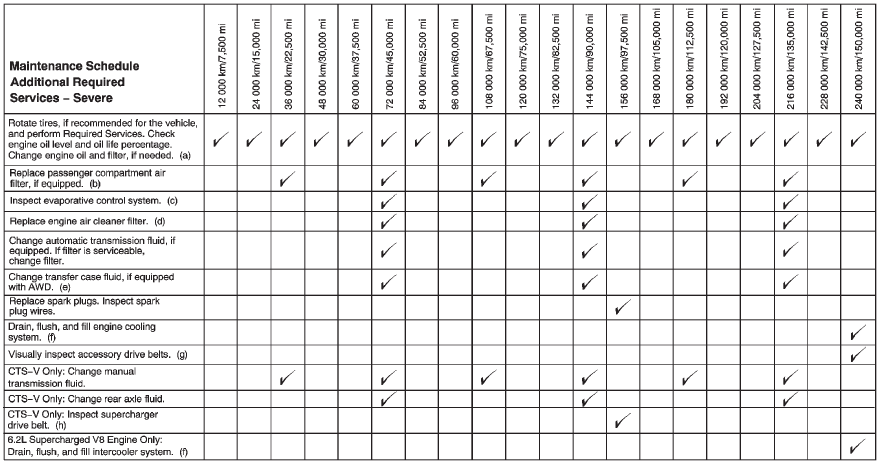Footnotes Ч Maintenance Schedule Additional Required Services Ч Normal
a) Vehicles with different size front and rear tires do not have tire rotation. See Tire Rotation.
b) Or every two years, whichever comes first. More frequent replacement may be needed if the vehicle is driven in areas with heavy traffic, areas with poor air quality, or areas with high dust levels.
Replacement may also be needed if there is a reduction in air flow, excessive window fogging, or odors.
c) Check all fuel and vapor lines and hoses for proper hookЦup, routing, and condition. Check that the purge valve, if the vehicle has one, works properly. Replace as needed.
d) Or every four years, whichever comes first.
e) Do not directly power wash the transfer case output seals. High pressure water can overcome the seals and contaminate the transfer case fluid. Contaminated fluid will decrease the life of the transfer case and should be replaced.
f) Or every five years, whichever comes first. See Cooling System.
g) Or every 10 years, whichever comes first. Inspect for fraying, excessive cracking, or damage; replace, if needed.
h) Inspect for fraying, excessive cracking, or damage; replace, if needed.

See also:
Automatic Door Locks
The vehicle may have an automatic lock/unlock feature. This feature can be programmed
using the Driver Information Center (DIC). See Vehicle Personalization
for more information on DIC ...
Vehicle Speed Messages
SELECTED SPEED LIMIT EXCEEDED
This message is displayed when the vehicle speed is greater than the set
speed. See "Speed Warning" under Driver Information Center (DIC). ...
GM Mobility Reimbursement Program (U.S. and Canada)
This program is available to qualified applicants for cost reimbursement of
eligible aftermarket adaptive equipment required for the vehicle, such as hand
controls or a wheelchair/ scooter lift ...






